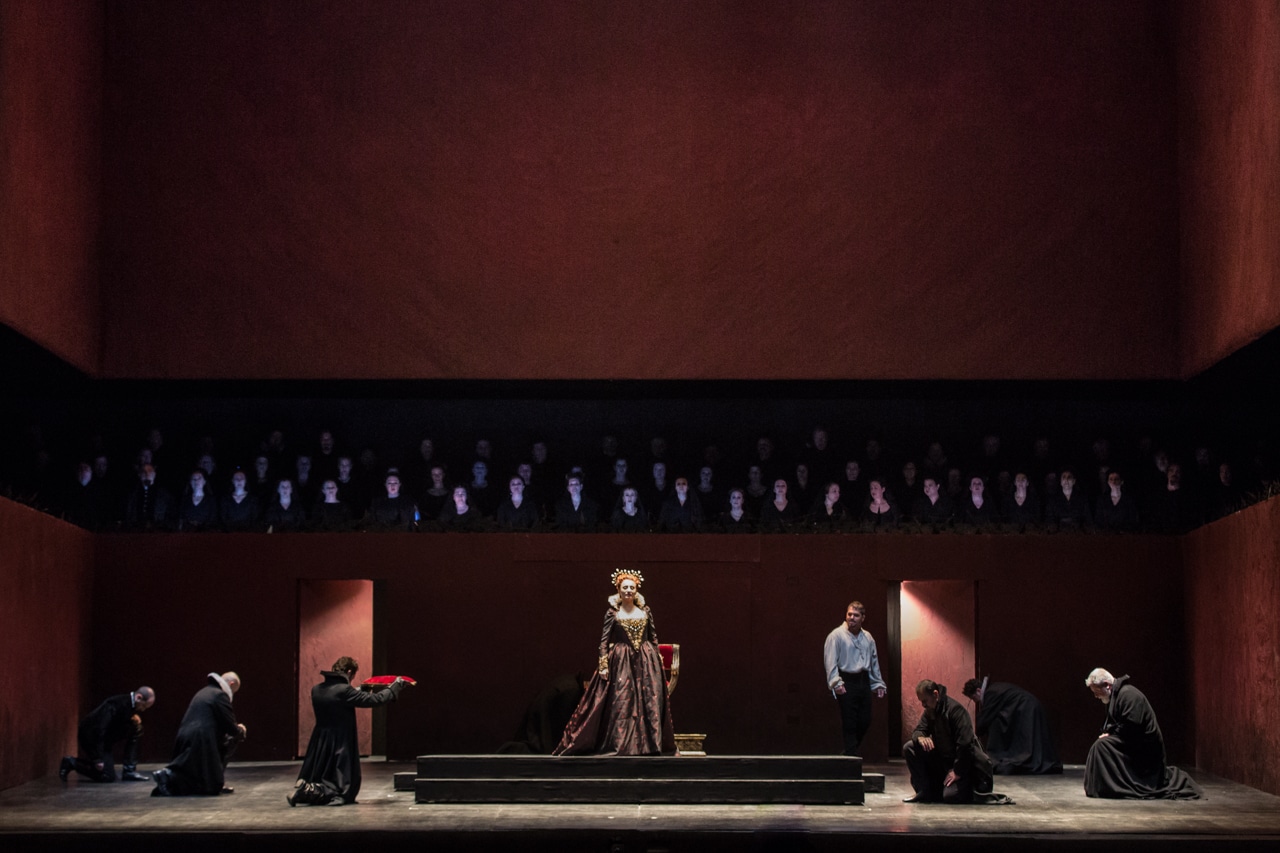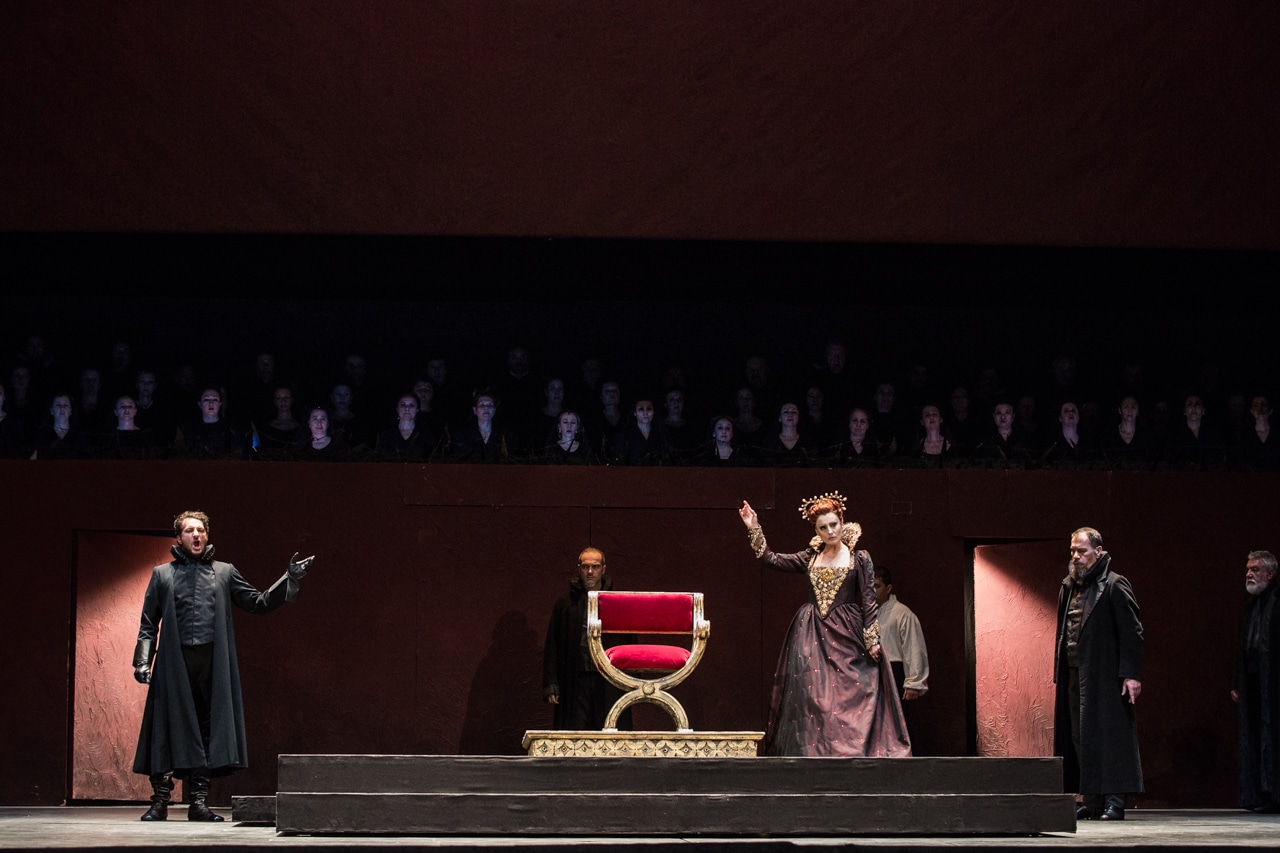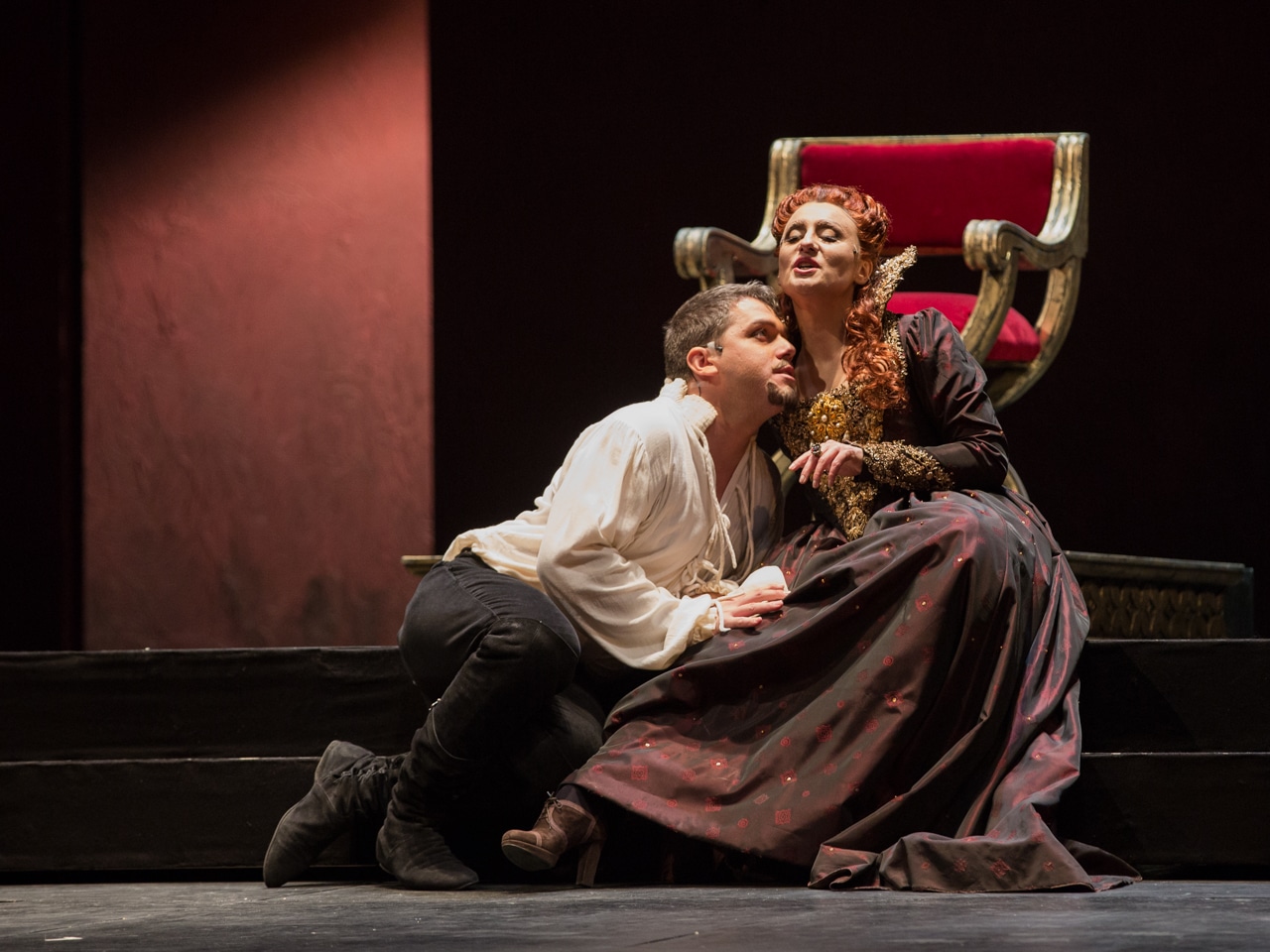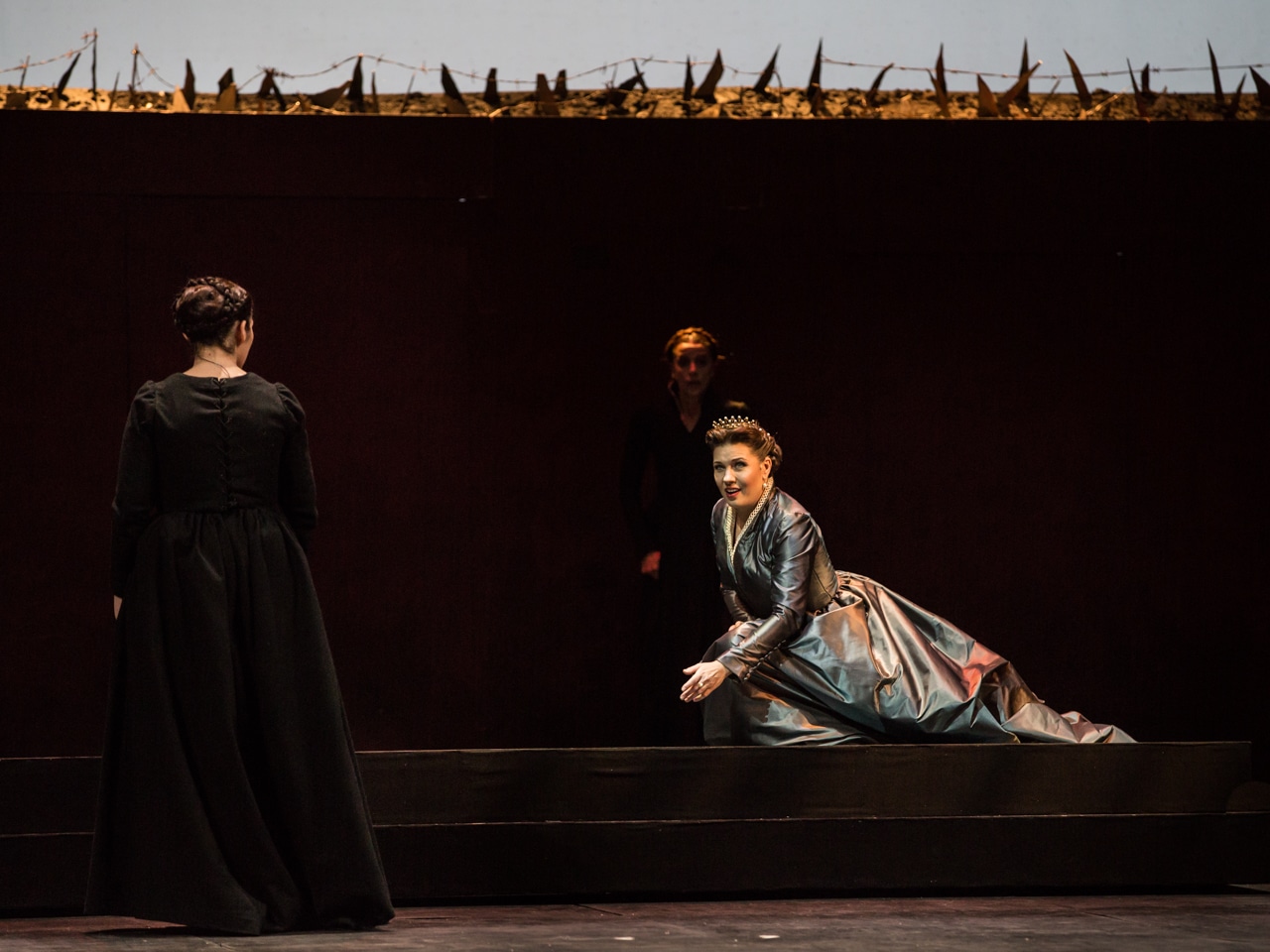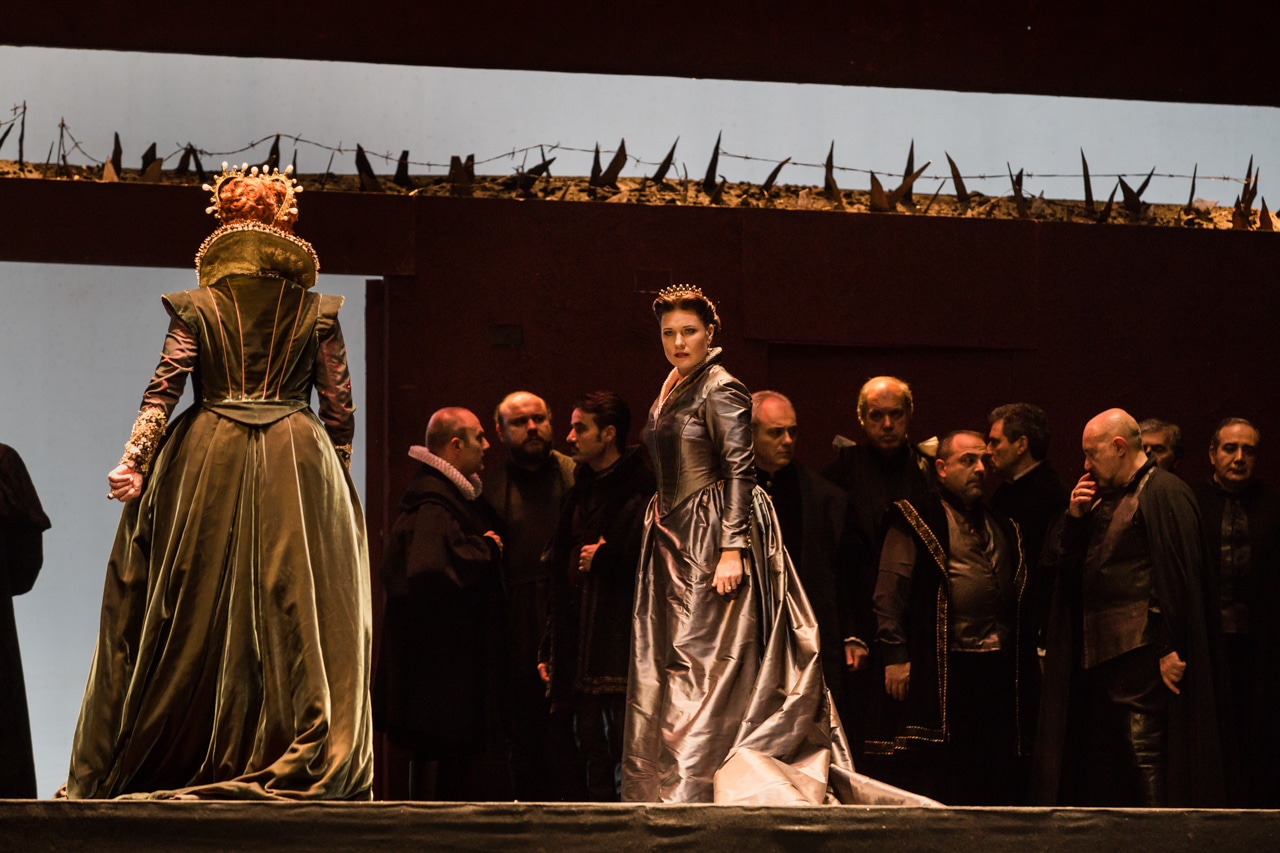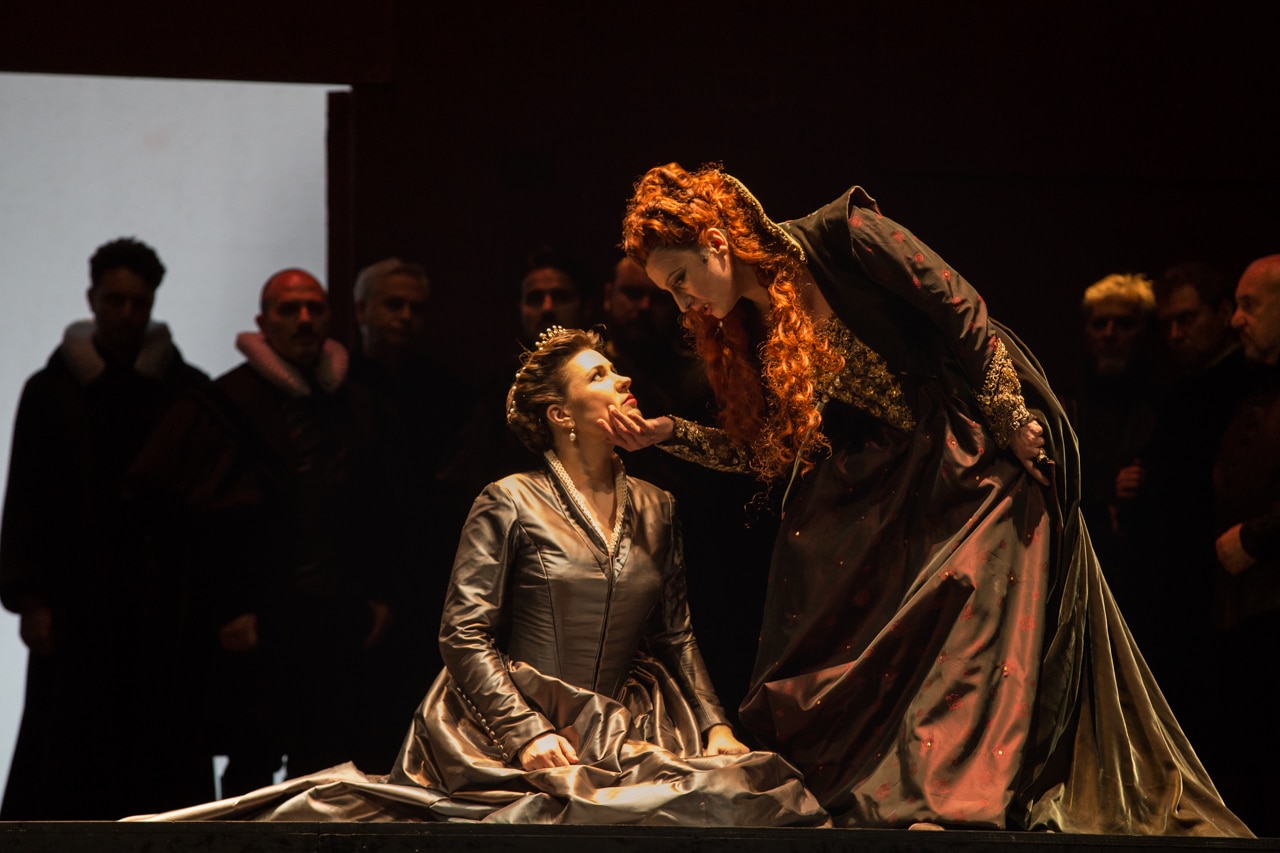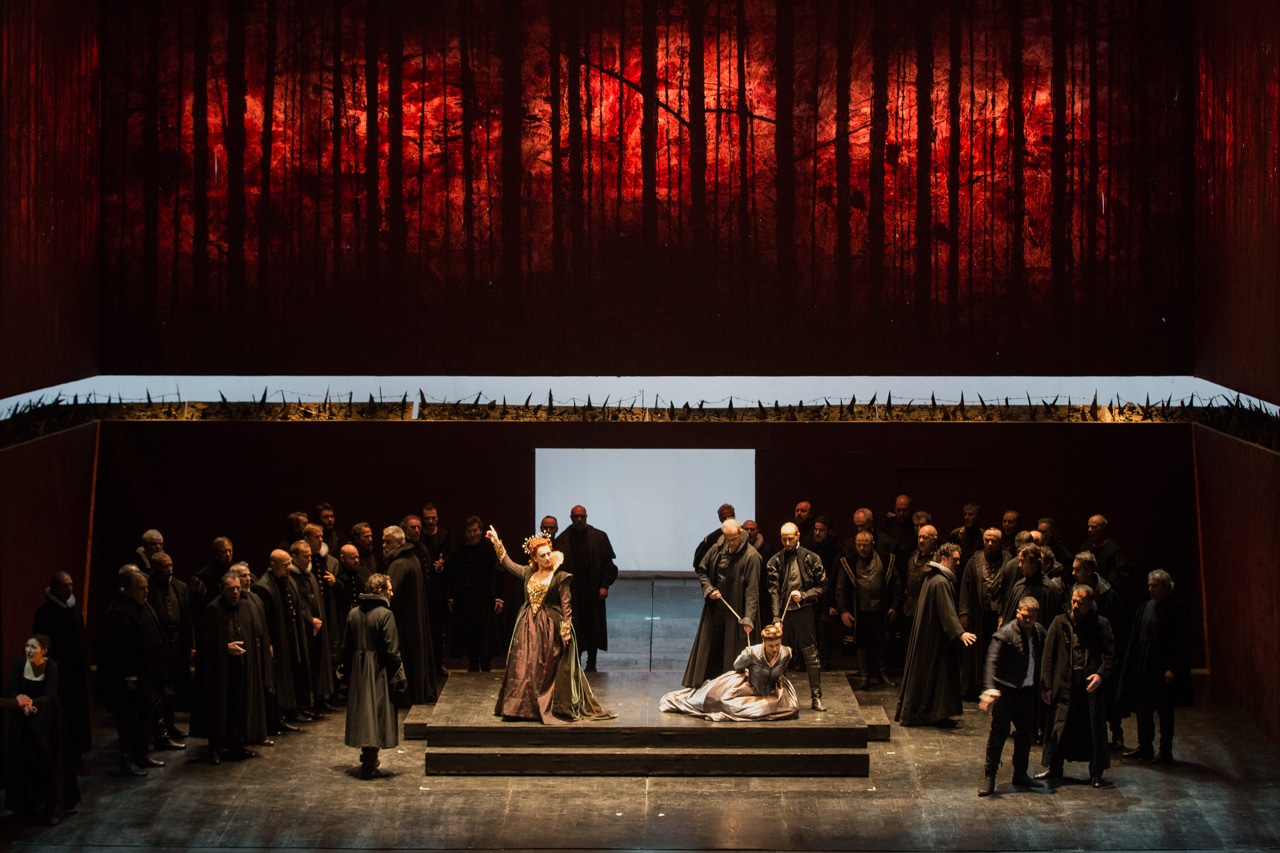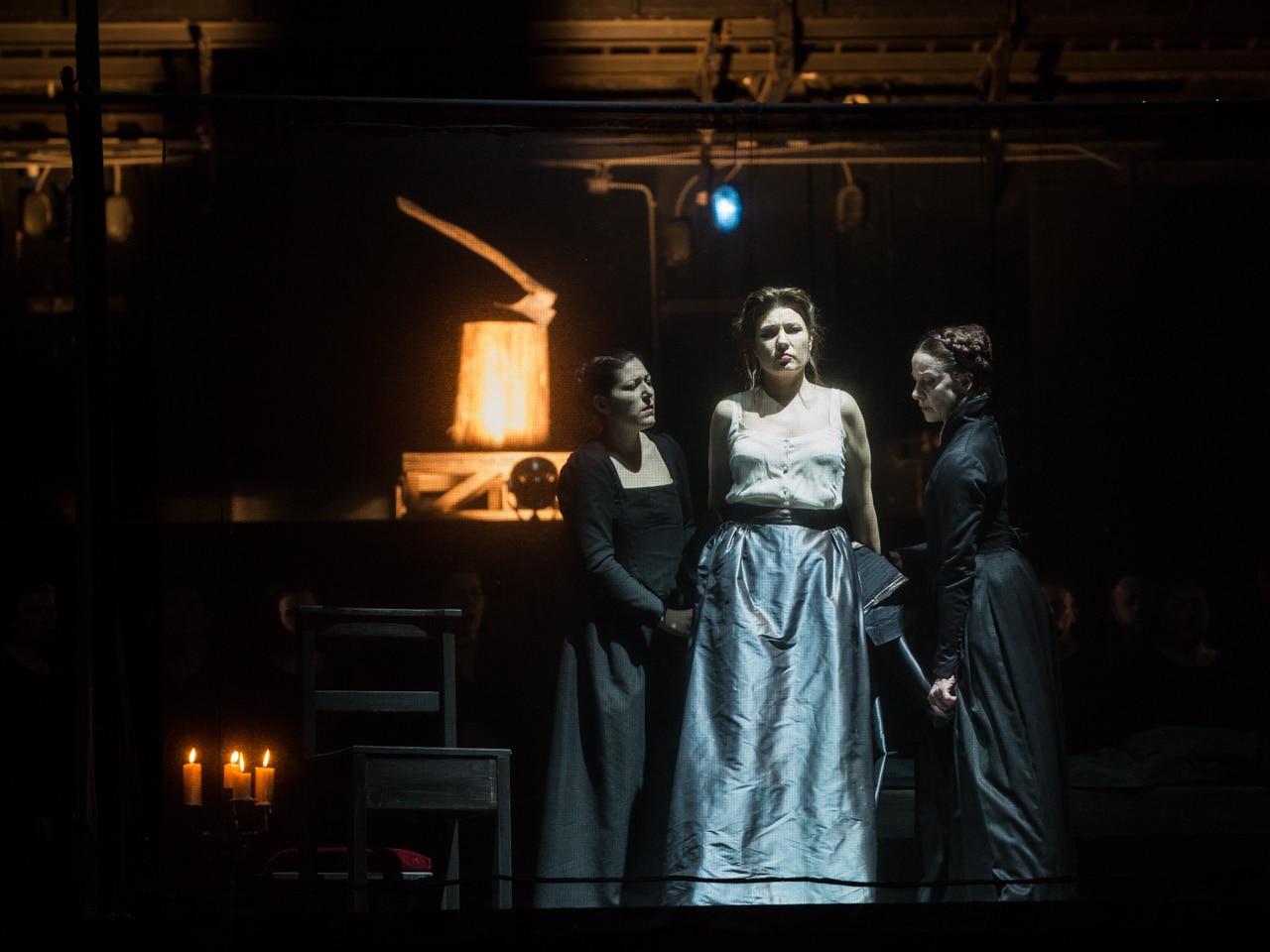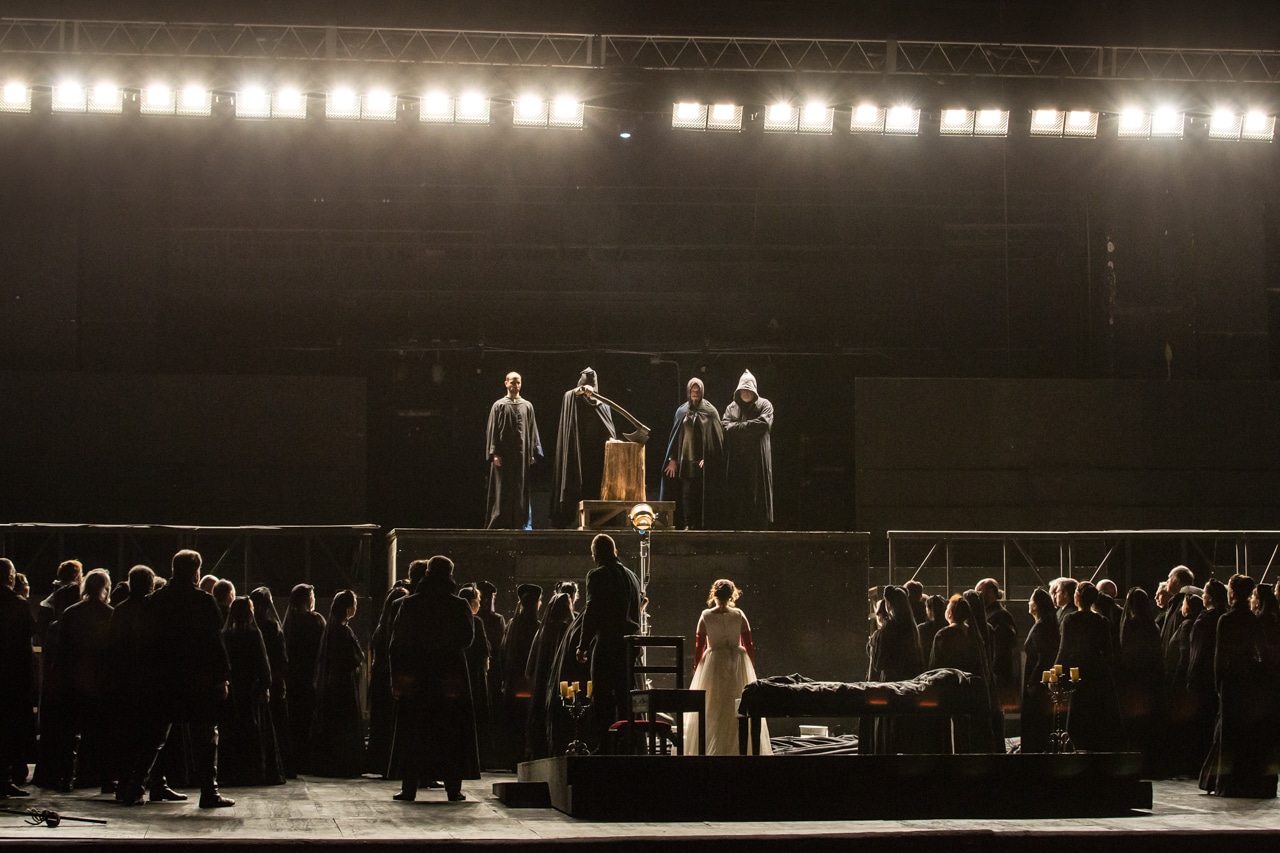Act I
The Palace of Westminster. After a tourney in honor of the French ambassador, who is negotiating with Queen Elisabetta concerning a marriage proposal from the King of France (“Qui si attenda, ell’è vicina”). Elisabetta shows a sense of duty to his subjects: she secretly pining for Roberto Leicester (“Ah quando all’ara scorgemi”). Lord Talbot, who is in charge of the royal prisoner, closes in on her and tries to intercede on behalf of Maria, imprisoned in Fortheringay Castle since fleeing from Scotland. Torn between pity for Maria and fear that she’s plotting against her, Elisabetta ends by giving heed to Lord Cecil, who warns her against the perils of pity. Arrives Leicester. To put him to the test, Elisabetta gives him a ring to take to the French Ambassador as a token of her acceptance of the offer of marriage, but is incensed when Leicester seems unmoved by the commission. Privately Talbot tells to Leicester his meeting with Maria Stuarda, who gave him a letter for Elisabetta and a portrait for Leicester (“Se fida tanto”). He resolves to free Maria, whom he loves by any means. While he goes out, he bumps Elisabetta: so he gives her the letter, which is a plea of Maria for a meeting with her, and he urges her to consent, pointing out that she can use a hunting party in the vicinity of Fortheringay as a pretext (“Sul crin la rivale”). Elisabetta reminds of Maria’s attempts on the English throne and finally exults that she has been brought low. But the Queen is convinced to not be touched by Maria’s obeisance. The grounds of Fortheringay Castle. Accompanied by Anna, Maria walks in the park, rejoicing in her limited freedom, but remembering sadly the happy days of her youth in France (“Oh nube! che lieve per l’aria t’aggiri”). The sound of the approaching hunt terrifies her: she regrets having asked Elisabetta for a meeting (“Nella pace del mesto riposo”), but, supported by Leicester, she agrees to stay and face her: Elisabeth seemed moved. Maria takes heart (“Da tutti abbandonata”).
Elisabetta also arrives at the Castle with mixed feelings: she rejected Cecil’s urgings that she executes Maria, but on the other she’s enraged by the fervor with which Leicester argues Maria’s case.
As Elisabetta and Maria confront one another, each is already convinced that the other is haughty (“È sempre la stessa”), but Maria makes an effort and humbles herself to ask for clemency. Elisabetta is obdurate. She reminds her Maria’s murdered husband, and Maria, despite Leicester’s attempts to calm her, overreact heavily taunting Elisabetta (“Figlia impura di Bolena”). Furious, Elisabetta advises her to expect her death sentence, but Maria exults in her temporary triumph.
Act II
Elisabetta’s apartments. Cecil urges the Queen to condemn Maria, but she is undecided and moved to pity (“Quella vita a me funesta”). Leicester tries to arreste the death sentence, but, with the view of him, Elisabetta shows herself decides to sign the sentence. Leicester is dismayed (“D’una sorella, o barbara”).
Informed about the sentence, Maria laments her own fate and, facing death calmly, tries to comfort them and receives religious blessing by Talbot, who is minister, too (“Oh, mio buon Talbot”). The cannon sounds the signal for the execution. Maria, dressed in black, sings a prayer (“Deh, tu di un’umile”). Cecil asks for her last requests, conceded her by the Queen. She forgives Elisabetta and prays for a blessing on her and the kingdom (“D’un cor che more reca il perdono”). Leicester arrives, desperate and transported by impulses of rebellion. Maria tries to calm heim and hopes that her innocent blood will placate the wrath of Heaven. Then, she goes resolutely to her fate (“Ah, se un giorno da queste ritorte”).



